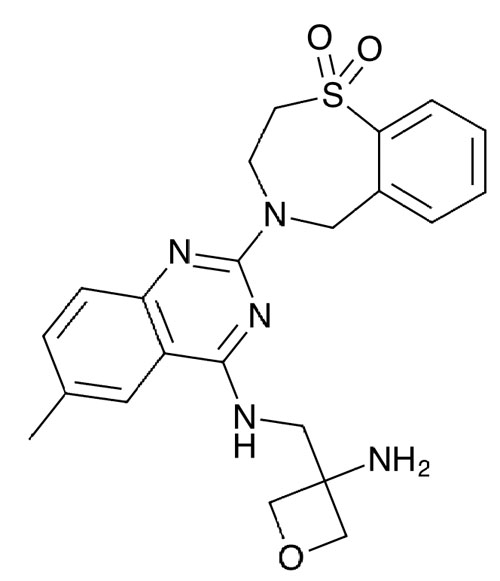After inhalation, it invades epithelial cells and causes damage to the respiratory tract, leading to excess mucus in the airway, lumen blockage and dyspnoea with fever, coughing, wheezing and a runny nose.
In severe cases, the patient may experience respiratory distress and complete blockage of the airways, ultimately leading to respiratory failure and death.
It is the leading cause of hospitalisation and death in children younger than 5; and, even when they only experience milder symptoms, it can develop into chronic respiratory diseases and affect them in the long-term.

The elderly are also susceptible to problems from RSV infection … as are those with compromised immune systems. Chinese company ArkBio has developed a potential treatment called ziresovir.1
It is a small molecule RSV fusion (F) protein inhibitor that binds to the F protein of the virus, preventing it from entering human cells. It can also suppress the transmission of the virus by blocking the cell fusion caused by the development of syncytia.
A Phase II trial has been done in infants aged between 1 and 24 months who were hospitalised with RSV.2 In the first part, 24 subjects were given a single dose of the drug (up to 4 mg/kg) or a placebo.
In the second part, 48 subjects were given 0.5, 1 or 2 mg/kg or a placebo twice a day. There were no safety or tolerability signals in the first part of the study; and, in the second part, target exposure was reached with the 2 mg/kg dose.
Median viral load was reduced more with the drug than with the placebo after 4 days. There was also a better reduction in the Wang respiratory score with the drug.
In a Phase III, double-blind, randomised, placebo-controlled trial, 244 hospitalised RSV patients aged between 1 and 24 months were given doses of ziresovir (10–40 mg according to body weight) or a placebo twice a day for 5 days.3
There was a significantly greater reduction from baseline in the Wang bronchiolitis clinical score for those given ziresovir than for those given the placebo, and the reduction in RSV viral load at day 5 was greater in the treated group.
Adverse events were experienced by 16% of those given the drug and 13% of those given the placebo, with the most common being diarrhoea, elevated liver enzymes and rash.
References
- X. Zheng, et al., J. Med. Chem. 62, 6003 (2019).
- L-M. Huang, et al., Influenza Other Respir. Viruses 17, e13176 (2023).
- S. Zhao, et al., N. Engl. J. Med. 391, 1096 (2024).
